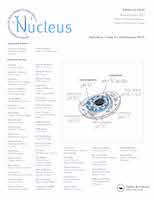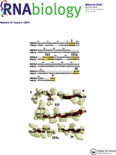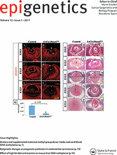
Non-coding RNA Research
Scope & Guideline
Fostering Global Collaboration in RNA Research
Introduction
Aims and Scopes
- Investigation of ncRNA roles in cancer biology:
The journal focuses extensively on the involvement of non-coding RNAs, such as microRNAs (miRNAs), long non-coding RNAs (lncRNAs), and circular RNAs (circRNAs), in the pathogenesis, progression, and treatment responses of various cancers. - Clinical applications and biomarker discovery:
Research published often explores the potential of ncRNAs as biomarkers for disease diagnosis, prognosis, and therapeutic targets, emphasizing their clinical relevance in conditions like cancer, diabetes, and neurodegenerative diseases. - Mechanistic insights into ncRNA functions:
A significant portion of the articles aims to elucidate the molecular mechanisms by which ncRNAs exert their effects, including their interactions with signaling pathways, gene expression regulation, and cellular processes. - Therapeutic innovations involving ncRNAs:
The journal encourages studies that investigate novel therapeutic strategies utilizing ncRNAs, including their application in drug resistance, targeted therapies, and gene editing approaches. - Interdisciplinary approaches to ncRNA research:
Research in this journal often integrates bioinformatics, molecular biology, and clinical studies, highlighting the importance of a multidisciplinary perspective in understanding the complexities of ncRNA functions.
Trending and Emerging
- Exosomal ncRNAs as diagnostic and therapeutic tools:
There is a rising trend in research focused on exosomal ncRNAs, highlighting their potential as biomarkers for various diseases and their role in intercellular communication, particularly in cancer and neurological disorders. - Circular RNAs in cancer and other diseases:
Circular RNAs are emerging as a significant area of interest, with numerous studies investigating their regulatory functions, involvement in disease mechanisms, and potential as therapeutic targets. - Interplay between ncRNAs and immune responses:
Recent publications are increasingly exploring how ncRNAs interact with immune pathways, influencing inflammation, and immune responses, which is critical for understanding diseases like cancer and autoimmune disorders. - Role of ncRNAs in metabolic disorders:
There is a growing body of work examining the contributions of ncRNAs to metabolic diseases, such as diabetes and obesity, indicating a broader application of ncRNA research beyond oncology. - Integrative multi-omics approaches:
The use of comprehensive multi-omics strategies to study ncRNAs in conjunction with genomics, proteomics, and metabolomics is on the rise, reflecting a trend towards understanding the complex regulatory networks involving ncRNAs.
Declining or Waning
- Basic research on ncRNA biogenesis:
There is a noticeable decrease in publications focusing solely on the fundamental aspects of ncRNA biogenesis, as the field has shifted towards more applied research with clinical implications. - Studies on non-coding RNAs in non-cancer diseases:
Research exploring the roles of ncRNAs in non-cancerous conditions, such as metabolic disorders or cardiovascular diseases, appears to be less frequent, possibly overshadowed by the pressing focus on cancer-related studies. - Exploratory studies without clear mechanisms:
There has been a reduction in publications that merely describe ncRNA expression profiles without delving into the underlying mechanisms or functional implications, as the field increasingly demands rigorous mechanistic insights. - Single-ncRNA studies:
Research centered on individual ncRNAs is becoming less common, with a growing preference for studies that examine networks and interactions among multiple ncRNAs and their targets, reflecting a more systems biology approach. - Overlapping themes with established journals:
Some topics related to ncRNAs, such as their roles in apoptosis or inflammation, are increasingly published in more specialized journals, indicating a potential waning of original contributions in these areas within this journal.
Similar Journals

Nucleus
Innovative insights at the intersection of biology and medicine.Nucleus is a distinguished academic journal published by Taylor & Francis Inc, dedicated to advancing the fields of Cell Biology and Medicine. Since its inception, the journal has gained significant recognition, achieving a Q1 ranking in both Cell Biology and Medicine (miscellaneous) categories in 2023. With a focus on innovative research that intersects molecular biology and genetics, Nucleus serves as a vital platform for researchers and professionals aiming to disseminate findings that contribute to our understanding of cellular mechanisms and their implications in health and disease. The journal's commitment to Open Access since 2018 ensures that cutting-edge research is readily available to the global community, fostering collaboration and engagement across disciplines. Located in Philadelphia, PA, Nucleus not only aims to publish high-quality articles but also aspires to influence future research directions in the biological sciences, making it an essential resource for anyone involved in the life sciences.

FUNCTIONAL & INTEGRATIVE GENOMICS
Connecting Genomic Research with Real-World ApplicationsFUNCTIONAL & INTEGRATIVE GENOMICS, published by Springer Heidelberg, is a leading journal in the fields of genetics and molecular biology. Established in 2000, it serves as a pivotal platform for advancing our understanding of genomic functionality and integration, making significant contributions to both basic and applied research in genetics. With a robust impact factor and a ranking in the Q3 quartile for Genetics and Q2 for Medicine (Miscellaneous), the journal aims to publish innovative research that explores the relationships between genomic data and biological functions, appealing to a diverse audience of researchers and professionals. Although it operates under a subscription model, the journal's extensive archives remain a valuable resource for academics seeking to stay abreast of the latest findings and methodologies in genomics. As the field evolves, FUNCTIONAL & INTEGRATIVE GENOMICS remains committed to fostering scholarly dialogue and the dissemination of groundbreaking studies that influence future research trajectories.

RNA Biology
Advancing Knowledge in Molecular and Cell BiologyRNA Biology is a premier journal published by Taylor & Francis Inc, focusing on the intricate and evolving field of RNA research. With an ISSN of 1547-6286 and E-ISSN of 1555-8584, this journal has established itself as an essential resource for professionals, researchers, and students engaged in both molecular and cell biology. Recognized in the 2023 quartile rankings, RNA Biology holds a distinguished Q1 category in Molecular Biology and a Q2 category in Cell Biology, indicative of its significant impact and reputation within the scientific community. The journal emphasizes the importance of RNA in various biological processes, highlighting both fundamental and applied aspects, which is crucial for advancing our understanding of gene expression and regulation. With a strong Scopus ranking, including Rank #105/410 in Molecular Biology and Rank #83/285 in Cell Biology, RNA Biology is not just a publication but a vital platform for sharing groundbreaking findings and insights into RNA research. With a convergence that spans from 2004 to 2024, the journal promises to continue its legacy of excellence in disseminating important discoveries in RNA science, contributing richly to ongoing scientific dialogue and innovation.

Epigenetics
Catalyzing Discoveries in Medicine and Molecular BiologyEpigenetics, published by Taylor & Francis Inc, is a leading journal in the fields of Cancer Research, Medicine (miscellaneous), and Molecular Biology. With an ISSN of 1559-2294 and an E-ISSN of 1559-2308, this journal has been paving the way for groundbreaking research since its inception in 2006, and it continues to play a crucial role in advancing our understanding of epigenetic mechanisms and their implications in health and disease. The journal is highly regarded, ranking in the Q1 category for Medicine and Q2 for both Cancer Research and Molecular Biology according to the 2023 category quartiles. Researchers and professionals in the field will find invaluable insights and innovative studies within its pages, making it an essential resource for those engaged in cutting-edge research. Although the journal is not open access, it encourages a comprehensive understanding through high-quality peer-reviewed content. With its creative exploration of the epigenetic landscape, Epigenetics serves as a vital platform for the sharing of knowledge that could lead to breakthroughs in treatments and therapies.

SEMINARS IN CELL & DEVELOPMENTAL BIOLOGY
Leading Insights into Developmental ProcessesSEMINARS IN CELL & DEVELOPMENTAL BIOLOGY is a premier journal published by Academic Press Ltd - Elsevier Science Ltd, focusing on the vital domains of cell and developmental biology. With an impact factor that reflects its rigorous contributions to the field, this journal embodies the highest standards of academic excellence, currently ranking in the Q1 quartile for both Cell Biology and Developmental Biology categories as of 2023. Researchers and practitioners will appreciate its robust Scopus ranking, placing it within the top tiers of developmental biology and cell biology, with percentile ranks of 94th and 90th respectively, showcasing the journal's influential presence in the scientific community. The journal aims to disseminate comprehensive reviews, cutting-edge research articles, and significant advances in the understanding of cellular mechanisms and developmental processes, thereby catering to a diverse audience that includes researchers, scholars, and students dedicated to the life sciences. Given its commitment to open access, SEMINARS IN CELL & DEVELOPMENTAL BIOLOGY promotes widespread dissemination of knowledge, enhancing collaborative research efforts and driving innovation across biological disciplines.

CELLULAR & MOLECULAR BIOLOGY LETTERS
Unlocking the Secrets of Life at the Molecular LevelCELLULAR & MOLECULAR BIOLOGY LETTERS, published by BMC, is a premier open-access journal dedicated to disseminating high-quality research in the fields of Biochemistry, Cell Biology, and Molecular Biology. Established in 1996, the journal has emerged as a leader in its domain, boasting an impressive Q1 ranking across three critical categories as of 2023, reflecting its significant impact within the scientific community. With an ISSN of 1425-8153 and an E-ISSN of 1689-1392, it offers accessible research findings to a global audience, having been open access since 2013. Situated in the United Kingdom, at CAMPUS, 4 CRINAN ST, LONDON N1 9XW, the journal continues to serve as a vital resource for researchers, professionals, and students, contributing to advancements in the understanding of cellular and molecular processes. By providing a platform for original research, reviews, and short communications, CELLULAR & MOLECULAR BIOLOGY LETTERS plays a crucial role in fostering dialogue and collaboration within the scientific community.

CURRENT GENE THERAPY
Transforming Genetic Horizons.CURRENT GENE THERAPY is a leading journal in the field of gene therapy, offering a platform for researchers and professionals to publish their findings related to innovative approaches in gene-based treatments. Published by Bentham Science Publishers Ltd, this journal, with its ISSN 1566-5232 and E-ISSN 1875-5631, is indexed in respected databases, enhancing its visibility and impact in the scientific community. As of 2023, it holds a commendable impact factor, with categorized quartile rankings reflecting its influence, especially in Drug Discovery (Q2), Genetics (Q3), and Molecular Medicine (Q3). Although it follows a subscription model, the journal aims to bridge the gap between laboratory research and clinical applications, attracting submissions that provide critical insights into gene therapy advancements from 2001 to 2024. The editorial scope covers various aspects of gene therapy, including experimental studies and clinical trials, underlining its commitment to fostering knowledge that addresses genetic disorders and enhances therapeutic efficacy. Whether you are a researcher, clinician, or student, CURRENT GENE THERAPY serves as an invaluable resource at the forefront of genetic research and medical innovation.

CELL CYCLE
Unveiling the Secrets of Cellular Mechanisms.CELL CYCLE, an esteemed journal published by Taylor & Francis Inc., stands at the forefront of biological research, focusing on the intricate mechanisms of cell proliferation, molecular biology, and developmental biology. With an ISSN of 1538-4101 and an E-ISSN of 1551-4005, this journal has established its influence in the field with a commendable impact factor reflecting its rigorous peer-review process and high-quality publications. Notably, in 2023, it achieved a Q1 ranking in Medicine (miscellaneous) and a Q2 ranking in both Cell Biology and Developmental Biology, marking its vital role in advancing scientific understanding and innovation. Operating within a converged framework from 2002 to 2024, CELL CYCLE caters to a diverse audience of researchers, professionals, and students eager to explore contemporary findings and emerging trends. The journal's objective is to disseminate groundbreaking research that enhances our understanding of cellular mechanisms, fostering collaboration and innovation. Although not an open-access journal, it remains a premier source for those engaged in cell cycle research, and its contributions have significant implications for fields such as healthcare, biotechnology, and genetics.

Cancer Cell International
Championing Excellence in Cancer ScienceCancer Cell International, published by BMC, is a transformative open-access journal established in 2001, dedicated to advancing the field of oncology and cancer research. With its ISSN number not specified and an E-ISSN of 1475-2867, the journal proudly operates from the United Kingdom, located at CAMPUS, 4 Crinan St, London N1 9XW, England. Renowned for its rigorous peer-review process, Cancer Cell International has made significant strides, securing a Q2 ranking in Cancer Research and Q1 rankings in both Genetics and Oncology as of 2023. It ranks impressively in Scopus, featuring in the top quintile of Genetics (#37/347) and Oncology (#52/404), indicating its importance within the scientific community. The journal's broad scope caters to a diverse array of topics within cancer biology, making it an invaluable resource for researchers, professionals, and students seeking to stay at the forefront of cancer science. With a commitment to disseminating high-quality research, Cancer Cell International invites scholars to explore innovative findings and contribute to the collective effort of combating cancer.

Journal of Cell Communication and Signaling
Unraveling the Complexities of Cellular InteractionsThe Journal of Cell Communication and Signaling is a prestigious academic journal published by Springer, focused on advancing the understanding of cellular communication mechanisms and signaling pathways. Since its inception in 2007, this journal has established itself as a leading platform in the field, with a strong impact reflected in its 2023 categorizations: Q1 in Biochemistry, Q2 in Cell Biology, and Q2 in Molecular Biology. Researchers from around the globe rely on its rigorous peer-reviewed articles to gain insights into the complex molecular dialogue that underpins various biological processes. With an ISSN of 1873-9601 and E-ISSN of 1873-961X, the journal is committed to disseminating high-quality research that informs both academic studies and practical applications in biotechnology and medicine. Although not an open access publication, it provides essential resources tailored for professionals, students, and researchers, enhancing their knowledge of critical signaling pathways that drive health and disease. The journal is located in the Netherlands, at VAN GODEWIJCKSTRAAT 30, DORDRECHT, and stands out in the field, boasting impressive ranks among its peers in the Scopus database.